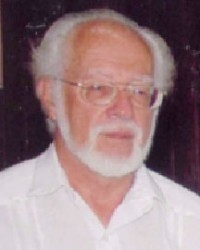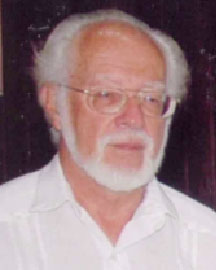The Aircraft Owners Association of Guyana (AOAG) is supportive of the decision by the Guyana Civil Aviation Authority (GCAA) to suspend shuttle flights to interior locations, according to Director Kit Nascimento.

“The AOAG absolutely believes that it must be safety first and there could be absolutely no compromise on standards at all,” Nascimento told a press briefing yesterday.
Director General (DG) of the GCAA Retired Lieutenant Colonel Egbert Field has said that though the suspension was a drastic decision, it was made in the interest of ensuring the travelling public’s safety, following three crashes and the deaths of two pilots.
Domestic airlines are expected to submit policies and procedures on such operations for approval.
Nascimento yesterday noted that as fuel shuttling is only done from airstrips in the interior regions, there is a common temptation by some operators to “bend the rules.”
“The DG has therefore asked for a comprehensive proposal on fuel shuttling procedures and I happen to know that Trans Guyana Airways submitted their proposals yesterday [Wednesday],” he said, while adding that the AOAG consulted with all of its members and would have submitted their proposals yesterday.
With respect to Trans Guyana Airways, Nascimento, who is a company spokesman, said that it has an “extremely elaborate and highly supervised operation at Olive Creek” where full load manifestos and comprehensive records of every load that comes and goes on an aircraft is kept, which needs to be the case for all operators.
“So what the DG has decided is that he wants his flight operations inspectors to be able to oversee these operations. If a flight operations inspector, for instance, goes to Mahdia and finds that there is an operator there that cannot produce load records, cannot produce loading manifestos, does not have the appropriate engineering supervision, then he will know what action to take and he has the full power to suspend to withdraw the operating licences of any operator,” he explained, while emphasising that the AOAG fully agrees and welcomes the decision.
Hurt a little
Nascimento also explained that the AOAG has been complaining about the insufficient amount of flight operations inspectors for more than a decade and said that the limited pool of inspectors is one of the reasons for operators being able to bend the rules.
“We want to see them do their jobs because we believe it will contribute significantly to bringing closure or at least reduce any possibilities of accidents of the kind we have seen,” he noted.
When questioned about how residents in the interior areas will be affected, Nascimento said that it is far better “for them to hurt a little bit and save lives by getting it right than continuing to get it wrong and I think they will understand that.”With respect to the proposals that were requested from the operators by the GCAA, he said that from his knowledge all of them should have already submitted. He added that it will be up to the GCAA Director General to decide for how long the shuttle flights would be suspended, while noting that it would be directly linked to the proposals that have been submitted and whether or not they are satisfactory.
He explained that when there are a number of accidents, especially fatal ones, then there is a need for intervention like what the GCAA has done. “In fact, in 2015 the Aircraft Owners Association sponsored and paid for a very extensive safety conference in collaboration with the GCAA and I note that the DG, who was not the DG then, had participated in that conference and he says that he would like another one this year and we welcome that too,” he added.
International help
Additionally, Nascimento said there is a need for collaboration with international organisations in investigations of aviation accidents, since it takes too long for local probes to be completed.
“Accidents have to be fully and properly reviewed and we do not feel the GCAA and the Accident and Investigation Department can operate without some international support and we think that because of these rogue accidents they should consider bringing in international support,” he said, while emphasising that it is never good to speculate and the truth can only be learned from a completed investigation.
“The only way you’ll know what went wrong is to carry out a full and prompt investigation and have full oversight. Accidents, whether on the air, road or sea are going to happen but you have to do as much as you can to prevent them. Safety first. That’s our position,” he said.
On July 25, 39-year-old Collin Winston Martin, the chief medical evacuation pilot for Roraima Airlines, died after his plane crashed while approaching the Eteringbang Airstrip in Region Seven (Cuyuni-Mazaruni).
In addition, on August 8, a single engine Cessna aircraft, bearing registration number 8R-GPR, crashed shortly after takeoff at the Eteringbang Airstrip. The pilot suffered minor injuries.
On August 27, Air Services Limited pilot Captain Imran Khan, 41, died after the plane he was flying crashed into the jungle between Chi-Chi and Mahdia in Region Eight.





